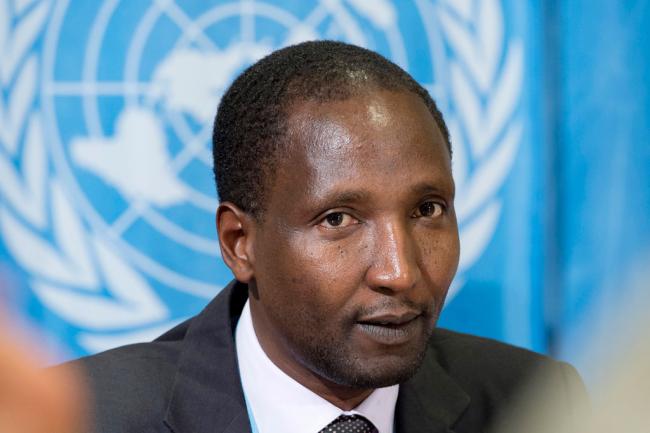
UN expert calls for context-specific strategies to counter xenophobia in migration crisis
“In the current era of increased mobility, widespread forms of overt physical violence, hate speech and discrimination are rooted in xenophobia,” the Special Rapporteur on contemporary forms of racism, racial discrimination, xenophobia and related intolerance, Mutuma Ruteere, told a news conference at the UN premises in Geneva.
He recommended that governments and stakeholders give due attention to a set of key elements in designing and implementing strategies with improved effectiveness. These elements include locally diagnosing the situation, implementing preventive actions, identifying an appropriate intervention scale, and reviewing and assessing the strategy.
“Strategies for countering xenophobic discrimination must be context-specific and carefully adapted to domestic realities,” Ruteere said. “Addressing xenophobia necessitates shifting the institutional, political and economic incentives that support, continue or heighten xenophobic practices.”
“The role of local actors, including local government, is paramount in designing and implementing tailored, local administrative and other measures to overcome local barriers to integration and peaceful cohabitation,” he added.
The independent expert also spoke about combatting the glorification of Nazism and neo-Nazism. Referring to reports of violence perpetrated against Roma, Muslims, Jews and other minorities and vulnerable groups, Ruteere strongly condemned the denial of the Holocaust and expressed concerns about cyber-racism and hate propaganda through social media platforms, as well as about the proliferation of extremist groups in sports.
“I call upon States to provide for heavier sanctions regarding offences with racist, xenophobic, anti-Semitic or homophobic motivations and to collect disaggregated data and statistics on racist, xenophobic and anti-Semitic crimes,” the Special Rapporteur said, adding that education remained the most effective means of countering the negative influence of extremist movements.
Special Rapporteurs are appointed by the Human Rights Council to examine and report back on a specific human rights theme or a country situation. The positions are honorary and the experts are not UN staff, nor are they paid for their work.
UN Photo/Jean-Marc Ferré
Source: www.justearthnews.com
Support Our Journalism
We cannot do without you.. your contribution supports unbiased journalism
IBNS is not driven by any ism- not wokeism, not racism, not skewed secularism, not hyper right-wing or left liberal ideals, nor by any hardline religious beliefs or hyper nationalism. We want to serve you good old objective news, as they are. We do not judge or preach. We let people decide for themselves. We only try to present factual and well-sourced news.







